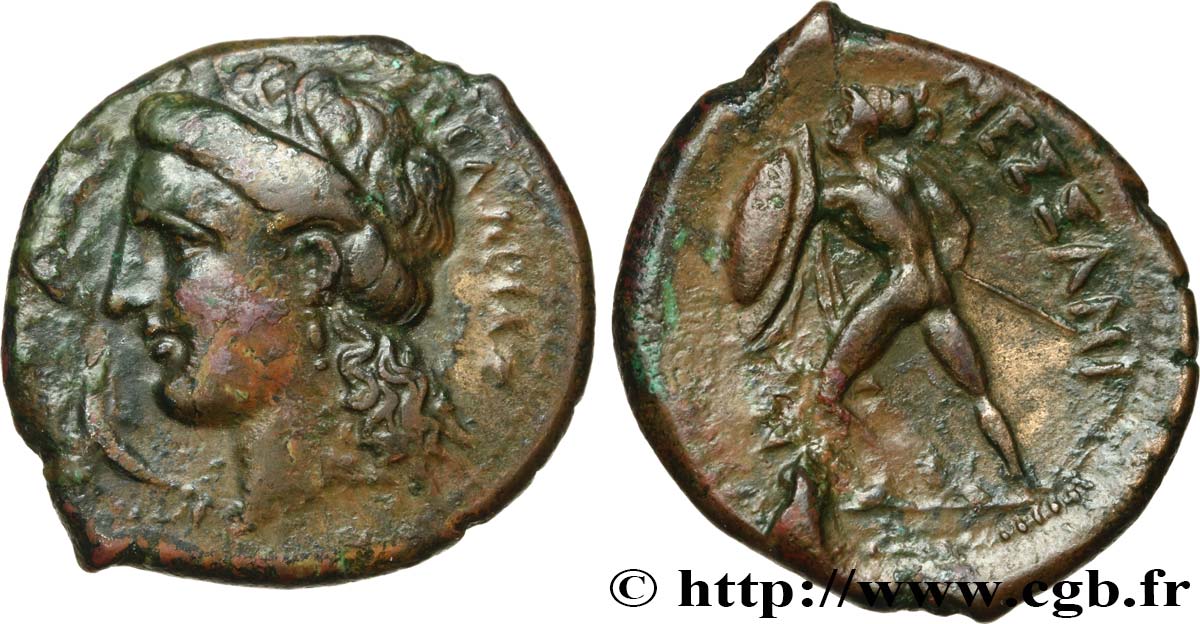bgr_487774 - SICILY - MESSANA Litra
Not available.
Item sold on our e-shop (2018)
Price : 175.00 €
Item sold on our e-shop (2018)
Price : 175.00 €
Type : Litra
Date: c. 310-288 AC.
Mint name / Town : Messine, Sicile
Metal : copper
Diameter : 21 mm
Orientation dies : 3 h.
Weight : 7,52 g.
Rarity : R1
Coments on the condition:
Exemplaire sur un flan ovale et irrégulier, bien centré. Très belle tête de nymphe au droit. Joli revers de style fin. Belle patine marron foncé
Catalogue references :
Obverse
Obverse legend : ANÉPIGRAPHE.
Obverse description : Tête diadémée de la nymphe Pelorias à gauche, couverte de roseaux avec collier et boucles d’oreilles ; devant deux petits dauphins ; grènetis circulaire.
Obverse legend : PELORIAS
Obverse translation : (Peloprias).
Reverse
Reverse description : Pheraimon nu casqué marchant à gauche, tenant de la main droite une javeline transversale et un bouclier de la main gauche.
Reverse legend : MESSANI[WN]
Reverse translation : (de Messine).
Commentary
Très beau visage faisant penser à Aréthuse, accosté de dauphins devant le visage.








 Report a mistake
Report a mistake Print the page
Print the page Share my selection
Share my selection Ask a question
Ask a question Consign / sell
Consign / sell
 Full data
Full data










